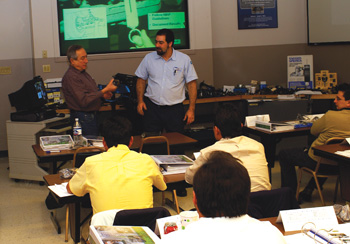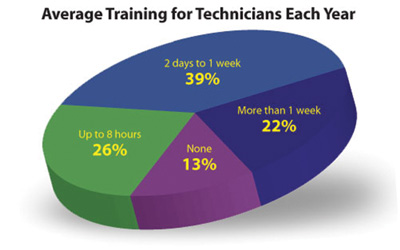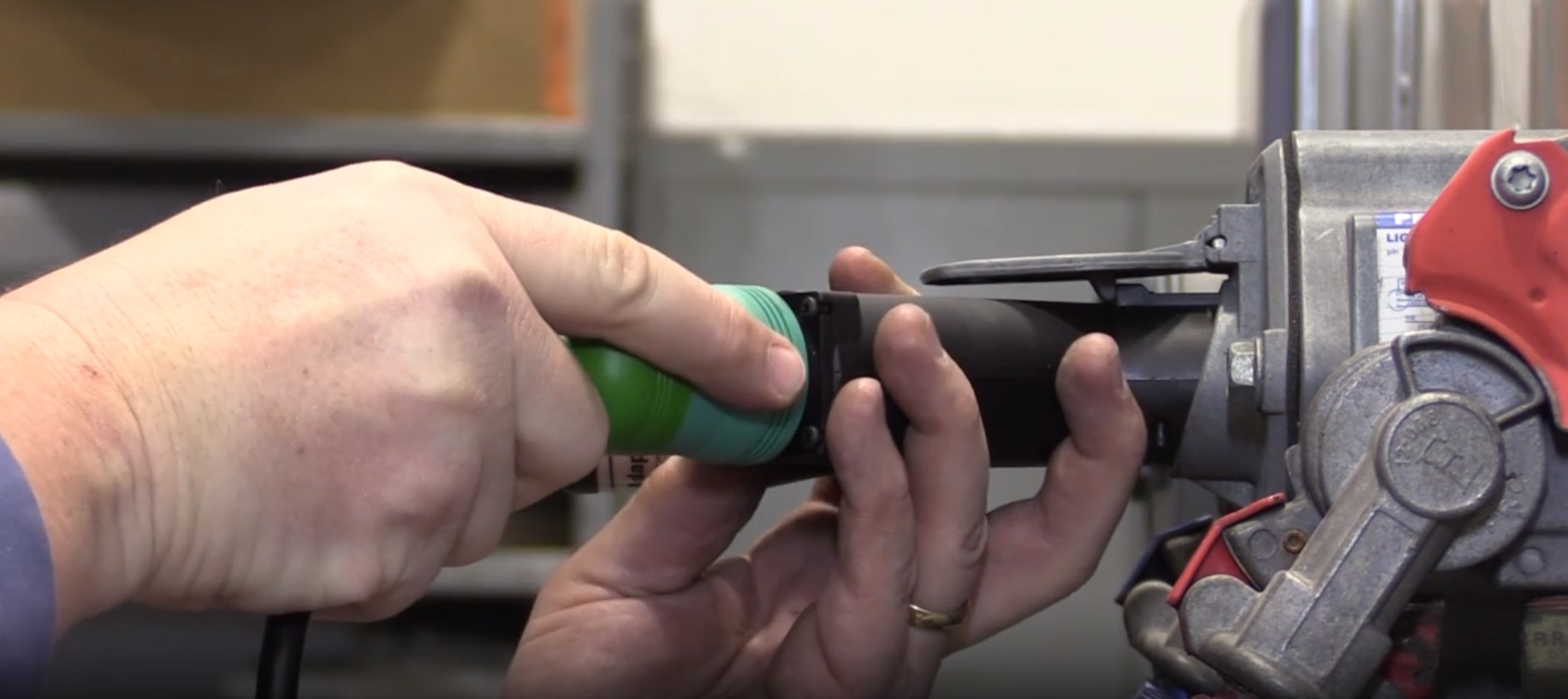by Tomorrow’s Technician staff
When some technicians hear the word “training,” it doesn’t interest them in the least. They think it means giving up an evening or a Saturday to sit through a long, boring lecture that may or may not teach them anything new.
Maybe they’ve been duped into attending a “training clinic” that turned out to be nothing but a three-hour sales pitch by a factory sales rep. Or, they attended a clinic that was way too basic for their skill level, or they discovered they knew more about the subject than the instructor who was leading the class. (Those kinds of clinics can be a total waste of your time.)

Others avoid training because learning takes effort, and for some people it can be downright painful. You have to listen, pay attention and take notes so what you hear doesn’t go in one ear and out the other. But that’s what training is all about: stuffing new information into the gray matter between your ears so you can use your brain to diagnose and repair vehicles more easily, accurately and profitably.
However, you may feel that once you’ve graduated from an automotive technical college, you are done with school. You may feel that way since you already spent thousands of dollars on your education and figure you know all there is to know about fixing and servicing vehicles.
The fact is, training is an absolute necessity these days if you want to remain competent and competitive in the auto repair business – whether it’s automotive diagnostics and repair, body work or heavy-duty diesels.
The new technology that is going into today’s vehicles has been changing at a break-neck pace. We’re talking about things like hybrid powertrains, controller area networks, flash reprogramming PCMs, direct fuel injection, coil-on-plug ignition systems, EVAP and catalytic converter diagnostics, stability control, adaptive cruise control, electric power steering, tire pressure monitoring systems, diesel engines, alternative fuels, ABS, GPS navigation, etc., etc., etc.
If you don’t have the know-how (and tools) to work on these new systems, you may not be able to diagnose or repair certain problems on late-model vehicles. In fact, you might not even be able to perform basic maintenance on some of these vehicles if you are not aware of certain precautions or special procedures that may be required. That’s why continuing training is so important.
Where to Go
Some of the best automotive diagnostic education we’ve found and attended can be acquired at various professional training conferences held around the country put on by trainers specializing in their field. These conferences may be held on-site at a designated training center, repair shop or dealership or off-site at a conference center, hotel or trade show. (You may even find yourself taking a training class at your former trade school or high school.)
Or, depending on your area of specialty, you may receive continuing education credits while attending various automotive association conferences and training programs provided by automotive associations such as the Automotive Service Association (ASA), Automotive Aftermarket Industry Association (AAIA), Automotive Warehouse Distributors Association (AWDA), Motor & Equipment Manufacturers Association (MEMA), Specialty Equipment Market Association (SEMA), Engine Builders Association (AERA), Mobile Air Conditioning Society (MACS) Worldwide, Inter-Industry Conference on Auto Collision Repair (I-CAR) and others.
Also, seek out parts and tool manufacturer- or supplier-based training seminars and clinics. While in the past, some may have been heavy on sales fluff, automotive parts and equipment companies in recent years have beefed up their training programs. In fact, some of these courses are conducted by NATEF-certified instructors and provide you with certificates of completion that you can display in your shop or portfolio.
These classroom-style training courses can run from a few hours to even one to four days, depending on the content. Price ranges can vary from a small fee to hundreds of dollars for some classes. However, usually those costs are picked up by the shop, dealership or parts store where you work.
Whichever direction you decide on improving your automotive technical skills, the best advice is to talk to peers and other technicians and mechanics in the industry on what types of training they found beneficial to their careers. There is a wealth of valuable information available in our industry — the issue is locating the courses that fit your needs, as well as finding the time to attend the program.
We know many technicians and shop owners who attend training programs and continuous education
seminars find valuable knowledge in the presentations that helps them in their everyday jobs.
So the next time somebody mentions training, don’t avoid it. Go for it!

10 Things to Look for When Selecting A Training Program
Knowledge is power. And, nowhere is that statement more evident than in the automotive service world, where experienced, trained techs have the ability to accurately diagnose complex vehicle problems, fix vehicles right the first time, ensure customer satisfaction and attract repeat customers — all key elements required for a successful, profitable shop.
Most experienced techs obtained their knowledge through lots and lots of training. Whether it was formal or informal, on-site or off-site, at home or at the shop, it represents a dedication to learn the skills necessary to work on vehicle systems required by their jobs, and a commitment to keep their skills up to date to ensure they deliver automotive service excellence.
With the goal of providing you with ideas on what to look for when selecting training programs, Babcox Research asked a sample of shop owner readers for their input on the topic. Some of those responses are listed below.
1. Assess the quality and reputation of prospective training program to be sure you will be getting good information and not sales pitches (i.e. at manufacturer training clinics).
2. Find a training program with hands-on training — as you learned in school, these usually are the most
beneficial.
3. Look for programs that are comprehensive and offer training materials that are easy to understand.
4. Seek out programs that offer more than just the basics, things like troubleshooting and driveability diagnostics.
5. Find a class that covers new automotive technology, current TSBs, and how systems work and affect other systems. Remember, no matter how great the curriculum at your school was, not everything you learned will prepare you for the vehicles of tomorrow, or for vehicles five years from now.
6. Look for a program that starts with an assessment of your knowledge of the subject area so the class can be tailored to fit to your skill level.
7. ROI — In your “cost versus benefits” evaluation, consider the training programs’ content, scheduling/availability and distance from your shop to get the most value for your money.
8. Find shorter training programs; longer programs can drag on and lose the technicians’ attention.
9. Relevant, “real-world” courses that impart information that can be applied in the shop or dealership right away.
10. Seek out targeted training programs that apply to vehicles in which you specialize at the shop or dealership where you work.
Note: For more articles on Training, see the Special Report section on this website.


